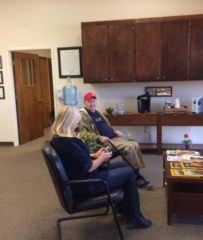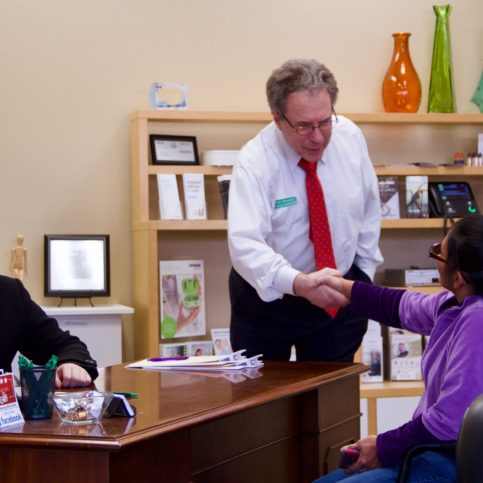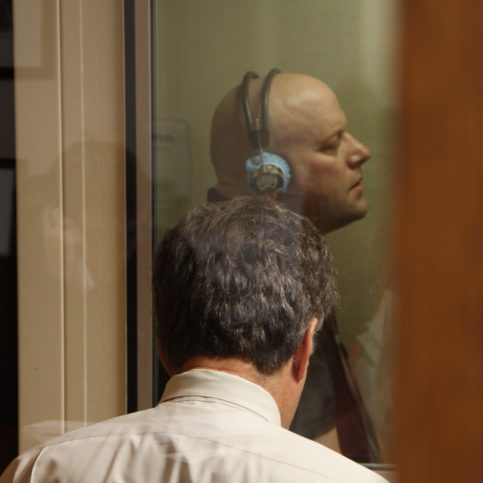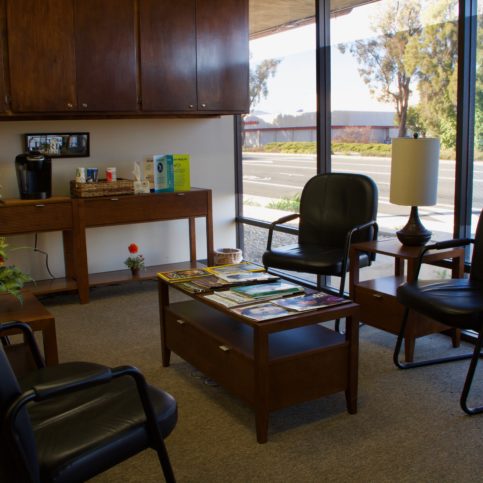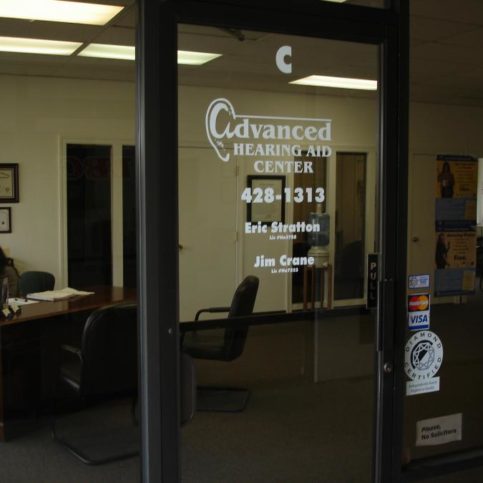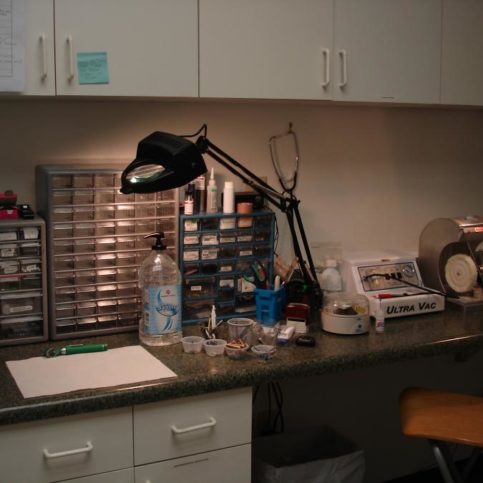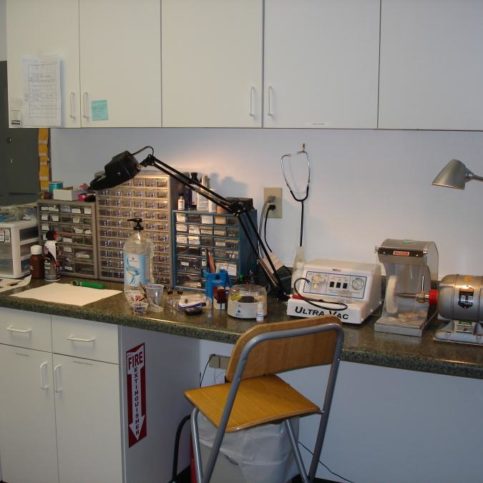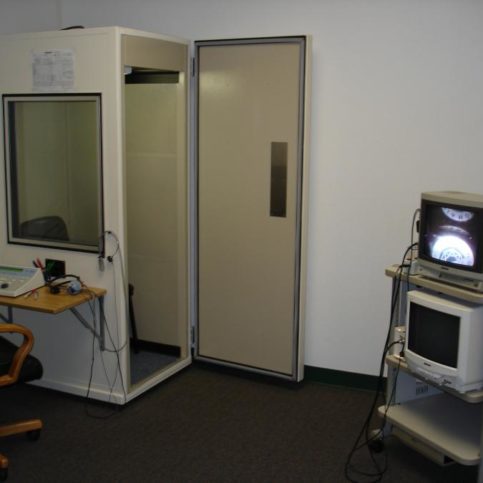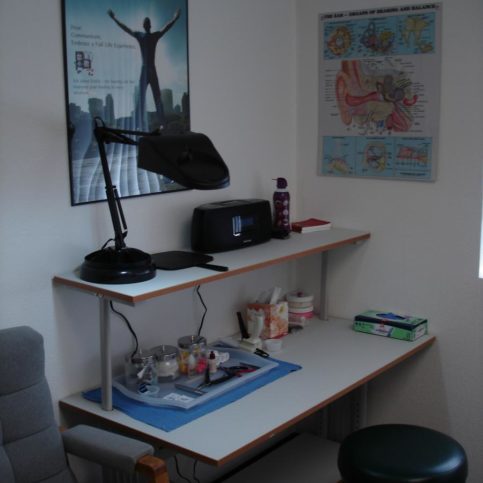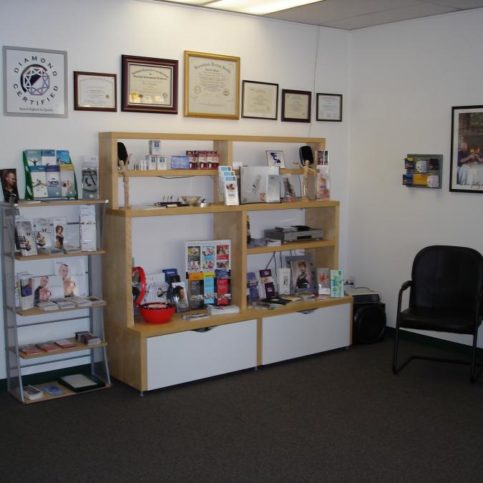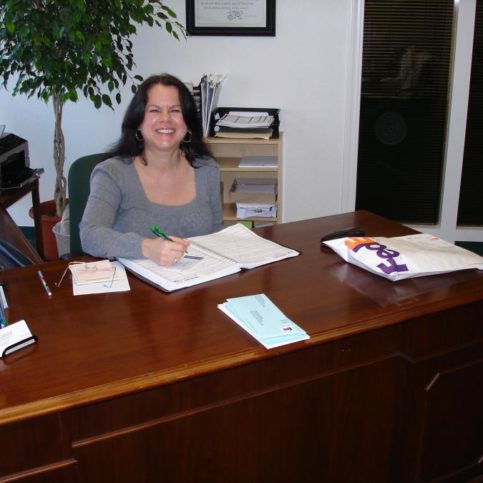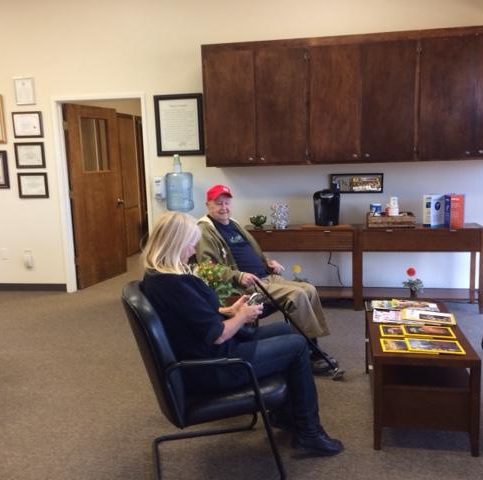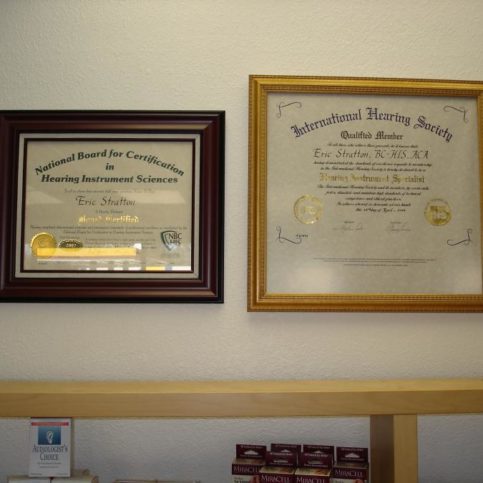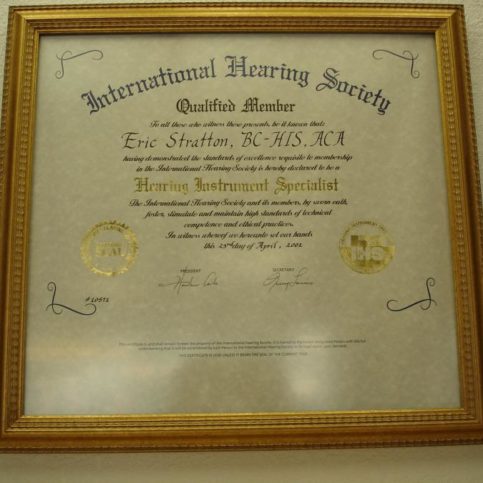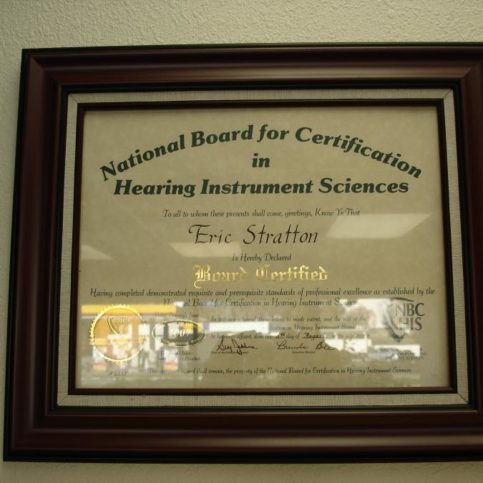Q: Do you offer a warranty?
A: Yes, we offer a 3-year warranty on all new hearing aides.
Q: What happens at the initial visit?
A: We encourage you to come with a family member. After some paperwork you will both talk with one of our licensed hearing healthcare professionals. The discussion will include why you came in and what both of you have observed about your hearing. This time is for you to communicate your concerns and get your questions answered. If needed, we will discuss the anatomy of the ear and how hearing works.If you already use hearing aids, they will be cleaned and checked. You will then have a “video otoscopic” visual examination of your ear canals and eardrums. This is a special medical camera that projects the image of your ear canals on a video screen (like a TV screen). You will be able to see if there is anything (such as ear wax) blocking your ear canals. You will then get a standard hearing test, in a booth, with headphones on. This will help determine if you’re hearing in within normal limits, or if you could be helped with hearing aids. The results of the hearing test will be explained to you. Any thoughts or questions you have will be handled.If it appears hearing aids would be helpful, your options will be explained. We have many sets of demonstration hearing aids in the office and can let you hear with them. At this time, we like to have you hear your family members’ familiar voice with the hearing aids turned on. This part in particular is very interesting and a lot of fun! At this point, you decide what you want to do.
Q: What it is like to be fitted with a new hearing aid?
A: It is really a lot of fun. The instruments are adjusted to your comfort level and particular needs. You will hear speech more clearly, as well as many environmental sounds that were below your perception. Your own voice will sound a little different, but should be acceptable. In the first six weeks there are several appointments to monitor your progress and address any concerns. Also, you are taught how your hearing aids work and how to take care of them. We often gets hugs and thanks from family members whose lives are also made easier because their loved ones hear better!
Q: What is an Audioprosthologist?
A: Aside from being a licensed hearing aid dispenser, owner Eric Stratton has earned the advanced Audioprosthologist credential. Audioprosthology is the science, art and study of audio-prosthetics, or hearing aids.
Q: What causes a decrease in hearing clarity?
A: Most hearing loss occurs gradually from exposure to loud or constant noise. It may also be a result of certain illnesses and can also be heredity. Commonly, it is simply an evolution of our physiology over time (in other words, aging). The most common form of hearing loss is sensorineural hearing loss, commonly referred to as nerve loss or nerve deafness. This happens when the inner ear and auditory nerves do not properly transmit their signals to the brain.
Q: How do I know if hearing aids will help me?
A: The American Medical Association concluded that 95% of people with hearing loss would benefit from hearing aids.
Q: Aren’t hearing aids just for old people?
A: Today , there are actually more people between the ages of 45 and 64 who have a hearing loss that those who are age 65 and older. Over the past 20 years, hearing loss in people ages 18 to 45 has increased by more than 26%. By the time Baby Boomers reach 65, more than 40% will have a hearing loss that should be treated.
Q: How can I tell if I have a hearing loss?
A: You can ask yourself the following questions: • Do you often ask others to repeat what was said? • Have family members or friends expressed concern about your hearing? • Do you turn up the TV or radio louder than others prefer? • Is it particularly difficult to understand conversation when there is background noise? • Does it seem as though others are mumbling when they speak to you? If you answered yes to any of these questions, you can benefit from a personal hearing evaluation from a licensed professional.
Q: What is the cost of a hearing evaluation and consultation?
A: At our offices we offer a complimentary hearing evaluation and consultation that is designed to determine if you could benefit from hearing aids.
Q: How much do hearing aids cost?
A: Most people require two of them. In 2008, across the U.S., the average price of a set of hearing aids was approximately $4,400. We are licensed and contracted to fit hearing aids from over 10 different laboratories. Hearing aids are available in various levels of technology, ranging from simple entry level, through mid-range technology, to very advanced levels of technology. We will work with your needs and budget to provide you with what you deem is best for you.
Q: I know someone who has hearing aids and never uses them. What if I don’t like them?
A: In our offices we allow a 75-day evaluation period for you to determine if they are satisfying your particular needs. You will get a full refund if you decide to return them during this period.The major ingredients for a successful outcome using hearing aids are:• Good quality hearing aids that are suitable for your needs • An office staff that has the tools, knowledge, experience, and the care factor to do an excellent job for you • A motivated patient who wants to hear better • A comprehensive guarantee. Most of our hearing aids come with a 3-year guarantee, which includes all office services
Q: Aren’t hearing aids large, ugly, and really noticeable?
A: Today, hearing aids are smaller and more sophisticated than ever. Some are so small and so effective, even you won’t realize you’re wearing them. Nor will anyone else.
Q: I have ringing in my ears, what’s that?
A: It is called tinnitus. More than 50 million Americans have it. It is a ringing, hissing or roaring in the ears when no external sound is present. It frequently causes depression and anxiety, and can be debilitating. There is usually no cure for tinnitus, but it can be managed with a great deal of success. People with it may or may not also have a hearing loss. Our offices offer solutions to help with this.
Read moreRead Less












